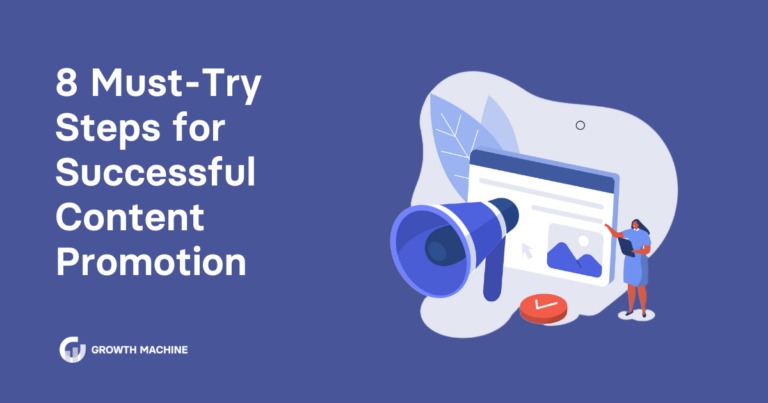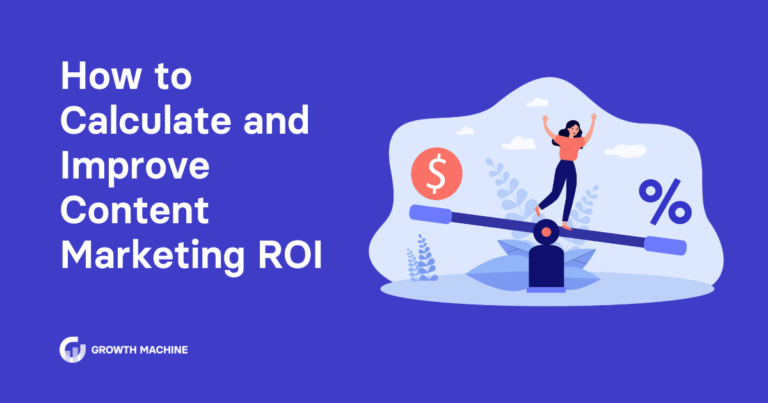Information Gain Explained: Why Unique Content Wins at SEO
Your brand is unique, but how different is your content? Whether you’re gathering your blog ideas from blog generators, generative AI writing tools, or your competitors, you risk rehashing the same topics as everyone else. As it turns out, there’s a price to pay for being a copycat.
Search engines like Google rely on information gain scores, which is a fancy way of saying “originality,” to determine how valuable your website is. A low score, compared with other less-than-stellar ranking factors, could put your site at the bottom of the search engine results page (SERP).
The good news is that by understanding information gain, you can rework your content and come out on top. Learn what information gain is and how you can apply it to your search engine optimization (SEO) strategy.
What Is an Information Gain SEO Strategy?
Information gain measures the amount of information your content provides in response to a specific search query. Information gain might sound like a new concept, but Google has used it since 2022 to fuel its Helpful Content Update. Clearscope co-founder Bernard Huang has also provided a great overview of information gain in the age of AI.
Search engines calculate your webpage’s information gain score to determine how well the content delivers on search intent. The other factor is the degree to which your site provides unique content that readers can’t find anywhere else.
Information gain has a direct impact on your website’s SEO ranking. It’s also the key to overcoming Google’s Featured Snippets and AI Overviews.
Incidentally, this SEO tactic is rooted in the concept of information theory, an academic idea that measures the value and uniqueness of information. Fortunately, you don’t need a master’s degree in mathematics to use information gain in SEO!
Turning your focus to information gain SEO strategies will help you:
- Boost traffic: There’s a Google patent for the algorithm measuring how much new information your site adds. Google isn’t eager to divulge exactly what it’s measuring, but it’s clear that the algorithm looks at uniqueness. The higher your information gain score, the greater your chances of ranking highly in the SERPs.
- Create effective content: Writing a piece of content that no one reads is the worst. Overcome apathy with information gain. Whether it’s a case study or landing page, focusing on unique content that delivers value will make your content more actionable. Information gain makes it easier to find related topics and semantic keywords for future content, too.
- Fight against AI: This SEO content strategy makes your information more relevant than all the AI-generated content on the SERPs. In an era when it feels like ChatGPT and other large language models (LLMs) are taking over the SERPs, you can fight the old-fashioned way — by creating amazing content that people can’t ignore.
- Improve the user experience: Information gain is a good thing for consumers since it incentivizes content creators and businesses to create content that goes beyond the basics. Users can get high-quality, in-depth answers from experts that address their biggest questions. Meanwhile, on the business side, writing content with unique perspectives keeps users on-site longer and builds trust in your brand. It’s a win-win.
- Increase authority: Information gain falls neatly into Google’s Experience, Expertise, Authoritativeness, and Trustworthiness (EEAT) guidelines. The search engine uses EEAT to determine whether your site is legitimate and trustworthy. It won’t happen overnight, but creating quality content will steadily increase your authority, both with search engines and human users.
- Earn more backlinks: Backlinks are a huge boost to your traffic, SERP rankings, and authority. Content with a high information gain score is more link-worthy and shareable, boosting your chances of earning backlinks. It doesn’t hurt that you might even rack up a few links from social media sites like LinkedIn.
How to Apply Information Gain to Your SEO Strategy
Information gain is the antidote to copycat content that no one wants to read. It’s an amazing principle, but how do you actually put this buzzword into action? Improve your information gain score with these three tips.
1. Follow Information Theory
Okay, we’re starting with the headiest suggestion first, but stick with us — it’s worth it.
Some of the following terms might sound like they belong in a science lab, but they can help you create winning content.
- Mutual information: This metric looks at connections. It helps identify how much information one piece of data (like a keyword) reveals about another (like a user’s search intent). For example, if someone searches for “healthy lunch recipes,” mutual information tells you that including specific, original recipe ideas rather than generic health tips will add more value. By focusing on connections that matter to your audience, you’re creating content that’s naturally more relevant and has higher information gain.
- Conditional entropy: This term is just a fancy way of saying how much uncertainty readers have after reading your content. In SEO, this means making sure that your content leaves readers with fewer questions than they came with. For instance, if your blog is about “how to create a content strategy,” don’t just define terms — show readers what they need to do, step by step. By reducing uncertainty, you’re not only helping readers but also optimizing your content for search engines that reward clarity.
- Features: Features are topics that add depth to your content and tie directly into the searcher’s intent. For instance, if you’re creating content on “SEO for beginners,” features might include “keyword research,” “linkbuilding,” and “on-page optimization.” Selecting the right features ensures that your content has high information gain, giving users precisely what they’re looking for while reducing fluff.
- Subsets: These are more focused chunks of information. Think of subsets as specific examples or data points that support each feature. For example, within the “keyword research” feature, subsets could include “finding long-tail keywords,” “using keyword research tools,” and “understanding search volume.”
2. Find Information Gaps in Content Creation
The best way to leverage information gain is to share knowledge — ideally, knowledge that no one else has. Look at existing content from your competitors to see where their content marketing might lack depth or detail.
Consider: What additional information do these topics need to be more comprehensive? Chances are, you’ll find ample opportunities to flesh out blog topics that turn heads. That’s especially true for older content, which benefits from a refresh with new tips and updated information or tools.
3. Remember That Data Is Your BFF
We talk about how originality matters, but it isn’t easy to pull off. A not-so-secret way to create unique content is to do a mini-study and publish your findings. You don’t need to pay for focus groups or conduct a proper academic study; a request on Qwoted can help you generate tons of responses in a few hours.
Once you have enough quantitative and qualitative data, publish it as a white paper or case study. You can gate the content to gather readers’ information, but ungating it can boost your chances of ranking well in the SERPs and earning more backlinks. Decide which outcome is more important for your business before gating your content.
By the way, you don’t have to do this yourself. Growth Machine’s team of professional white paper-writers can handle a lot of the heavy lifting for you. Enjoy all the benefits of information gain without the painstaking research — we’ll handle the analysis and writing for you.
Growth Machine: SEO Wins Made Easy
As a business owner, it’s crucial to understand just how important it is to share fresh perspectives and provide unique information that goes beyond what’s available in your competitors’ existing content. After all, if you’re just rehashing what’s already out there, search engines don’t have a reason to feature your content, do they?
The concept of information gain might sound academic and boring, but at its core, it’s about delivering value in a structured, intentional way. Businesses know they need to create quality content; information gain is one more handy tool to help you do just that.
The tips in this guide will help you get far, but there’s so much more to implementing information gain strategies. When results matter, go with Growth Machine’s SEO and digital marketing experts. We take good content and turn it into unforgettable content that captivates — and converts — your audience, all while helping you stand out on Google search. Contact us today to build a trend-setting content strategy that hits the mark.







